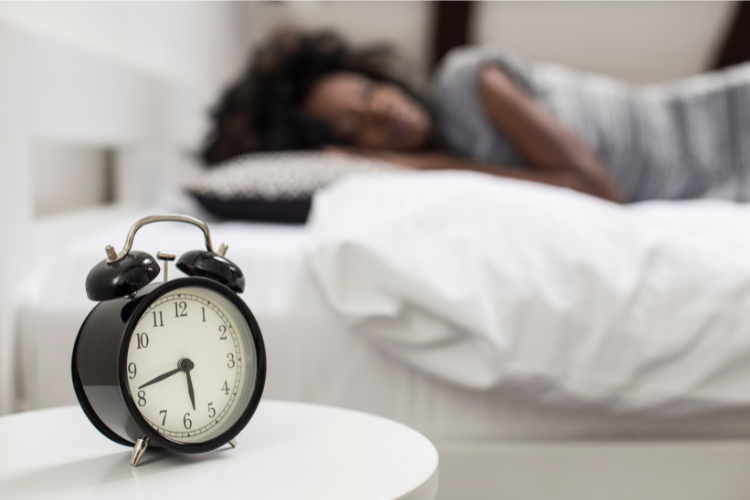Blog
Unlocking the Secrets of the Most Underrated Superpower: Sleep
In today’s fast-paced world, sleep has become a luxury that many people struggle to attain. A good night’s rest is essential for overall health and well-being, yet millions of individuals worldwide suffer from sleep issues, leading to a multitude of health problems and reduced productivity. This blog article aims to shed light on the importance of good sleep, present recent studies and statistics about sleep issues and lack of sleep, and offer practical methods, strategies, and products to improve the quality of our sleep.
The Importance of Good Sleep
Sleep is a biological necessity that allows our bodies and minds to rest, repair, and rejuvenate.
According to the World Health Organization (WHO), about one-third of adults worldwide do not get enough sleep, with the figure rising to 50% in some developed countries.
Adequate sleep positively impacts various aspects of our lives, including:
1. Physical Health
Sleep is vital for the proper functioning of the immune system, cardiovascular health, hormone regulation, and muscle repair.
2. Mental Well-Being
A restful sleep significantly affects mood, cognitive abilities, and emotional resilience.
3. Memory Consolidation
During sleep, our brain processes and consolidates information, enhancing memory and learning abilities.
4. Stress Reduction
Quality sleep contributes to reducing stress levels and promoting mental clarity.
The Adverse Effects of Sleep Deprivation
The consequences of insufficient sleep go beyond feeling groggy or tired during the day. Prolonged sleep deprivation can lead to severe health issues, including:
1. Impaired Cognitive Function
Impaired cognitive function due to sleep deprivation can significantly impact our daily lives. It affects our ability to concentrate, solve problems, and make decisions. Memory recall and learning capabilities are also compromised, hindering our overall cognitive performance. Additionally, long-term sleep deprivation can lead to cognitive decline and an increased risk of developing neurodegenerative diseases later in life. Prioritizing quality sleep is essential for maintaining optimal cognitive function and mental clarity.
2. Weakened Immune System
Chronic sleep deprivation weakens the immune system, making the body more vulnerable to infections and illnesses. Adequate and restful sleep is essential for maintaining a strong immune response and overall health.

3. Weight Gain and Obesity
Insufficient sleep disrupts hormonal balance, leading to increased appetite and a higher risk of weight gain and obesity. Prioritizing quality sleep is crucial for regulating hunger hormones and promoting a healthy weight.
4. Cardiovascular Problems
Sleep deprivation has been linked to an increased risk of cardiovascular problems, including hypertension, heart disease, and stroke. Prioritizing adequate sleep is vital for maintaining cardiovascular health and reducing the risk of such issues.
5. Reduced Productivity
Sleep-deprived individuals are less focused and less productive in their personal and professional lives.
Methods and Strategies to Improve Sleep
Thankfully, several effective methods and strategies can help improve sleep quality:
Establish a Consistent Sleep Schedule
Go to bed and wake up at the same time every day, even on weekends, to regulate your internal clock. Our circadian rhythm needs Love too! Tips from a pro: if you find your cycle really out of whack and hard to sleep early, try waking up at your goal time anyway, eventually, you will start being tired enough earlier in the night!

Create a Relaxing Bedtime Routine
Engage in calming activities like reading, meditation, or taking a warm bath to signal your body that it’s time to wind down.

Optimize Sleep Environment
Keep your bedroom cool, dark, and quiet, and invest in a comfortable mattress and pillows that support your sleep posture. If necessary, get yourself sleeping mask and earbuds, especially if you share your bed with a chronic snorer!

Limit Screen Time
Reduce exposure to electronic devices like smartphones and laptops before bedtime, as the blue light can disrupt the production of the sleep hormone, melatonin. In fact, you want to dim the lights at least 3h before sleep

Watch Your Diet
Avoid heavy meals, caffeine, and alcohol at least 3h before bedtime, as they can interfere with sleep. Instead, sip on chamomile or herbal infusions.

Regular Exercise
Engaging in regular physical activity can improve sleep quality, but avoid intense workouts close to bedtime.

Manage Stress
Practice stress-reducing techniques like yoga, deep breathing, or mindfulness to promote relaxation before sleep.

Products to Enhance Sleep Quality
Several products can complement the above strategies and improve sleep quality:
- White Noise Machines: These devices can drown out background noises and help create a serene sleep environment.
- Sleep Trackers: These wearable devices can monitor your sleep patterns and provide insights into your sleep quality.
- Aromatherapy: Essential oils like lavender have calming properties that can promote relaxation and improve sleep.
- Blackout Curtains: These curtains block external light and create a dark sleeping environment, especially beneficial for those with irregular sleep schedules.
- Weighted Blankets: These blankets provide gentle pressure, which can have a calming effect and reduce anxiety during sleep.
Takeaway
Sleep is not a luxury; it is a fundamental pillar of our well-being. Understanding the importance of good sleep, recognizing the prevalence of sleep issues, and implementing practical methods, strategies, and products to enhance sleep quality are crucial steps towards a healthier and more fulfilling life. Prioritize sleep, and you’ll reap the benefits of improved physical health, mental well-being, and increased productivity throughout your day. Sweet dreams!

 Indonesia
Indonesia


